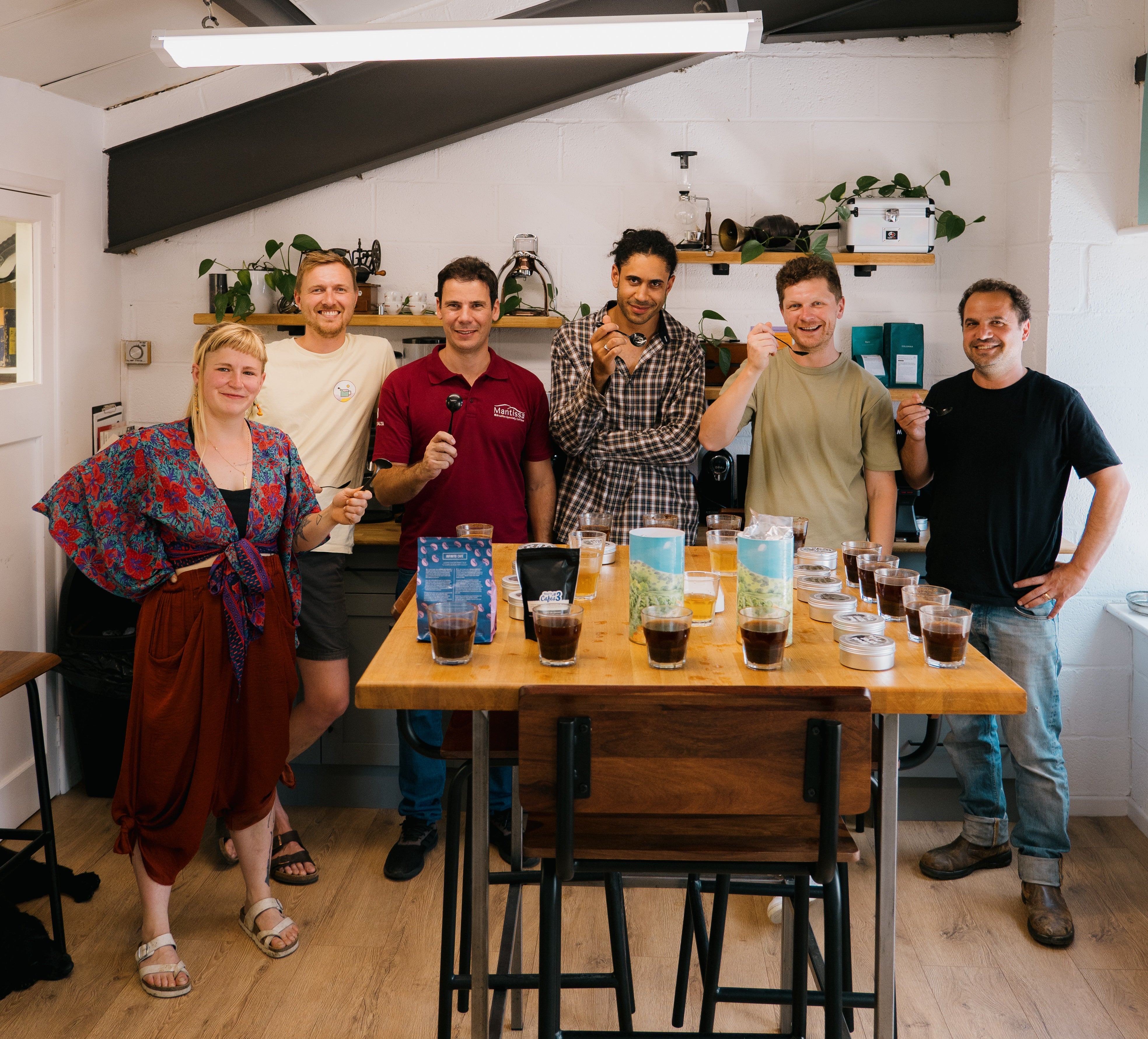
2024 marks our 1st year of working directly with the Mantissa farm in Brazil. It's thanks to our good friend and former Beanie, Artur, that we have this amazing new opportunity. Artur visited the farm and immediately knew it was somewhere that ticked all the MB boxes. After then flying over the farmer & exporter, Athos, to meet the team and spend the day at the roastery, the plan has truly come into action!
Olly, our Roastery Manager, caught up with Athos in June 2024 and got his thoughts on all things Brazilian coffee, including how he's handling the pressure of a family business and adapting it to remain relevant in the modern day coffee industry.
Q: When / How did you first become involved in coffee growing & exporting?
A: I have been involved in coffee since a child. I was born under a coffee tree! My father, grandfather great grandfather and great-great-grandfather were all coffee farmers – I’m now the 5th generation. Now my goal is to pass it onto my son – to continue the family legacy.
When I was a teenager I helped move the coffee cherries from the picking to the processing stations during my school holidays – it didn’t feel like work, it was fun and I loved working with my father. I used to bring along my cousins & friends too who all enjoyed it.
I saw numerous crises in the coffee industry when I was growing up (14/15). The prices were so bad at times, producers had tough financial situations, so I did think at times that maybe it wasn’t for me – it was too risky a profession. When I reached studying age I thought I woild want to work in the stock market in bigger cities. After 6 months of living in a bigger city I missed my former life, so I moved back to work in coffee. Initially this involved working for an exporting company. I used that as a stepping stone to eventually return to my father’s farm and used the connections I had developed to then support his farm and the local community (15 years ago).
Since then I’ve only known coffee. It’s my passion. It’s a constant challenge, wars, frosts, etc. but it means you must stay honest, work hard and adapt for the future. Stay optimistic and always believe that next year is going to be one of the best harvests yet.
Q: How have the farms grown over the years, how has production increased in your time?
We’ve improved the techniques for harvesting, fertilisation and everything that contributes to increased production.
Climate change has been the biggest challenge – some parts of Brazil are now unable to grow coffee year after year, so farms are moving to new regions. Checking the short- and long-term weather & climate forecasts is so important now to have successful yields and better technology is helping with that.
We almost exclusively help small – medium producers, who on average have 10-30 hectares of land, to harvest and sell their beans when they don’t have the infrastructure themselves. The smaller farmers love what they do, growing and taking care of the plants, but we help them with the end process of the industry. These smaller farms try to keep their land in the family so will only pass on their own techniques to future generations – we hope to help them by also teaching new ideas and improving their own production. Increasing the yield of lots of small farms is better than one big farm dominating.

Q: How are the farms meeting the growing expectations for organic, ethical, sustainable farming techniques and workforce welfare?
Increasing natural techniques such as this is tough in the short term but worth it in the long term.
We have various pests & bugs that can cause concern to any farms across the world, but we have the wildlife on and around our farms – birds, monkeys, snakes – that are natural predators to assist with any negative pests, you just need to stay out of their way sometimes!
We always aim to be Carbon Zero and if you take into consideration the oxygen produced by the plants themselves, then we are certainly meeting that target.
Q: What makes the coffee we’ve selected at Missing Bean so special?
We’ve set aside a coffee specially for you as we want to showcase our best and feel you are the best way to do that. We have only started this relationship with you recently, but it already feels like we’ve been friends for such a long time. Thank you!

Q: How can our customers here in Oxford and across the UK help you, help the farms and help direct trade?
Q: What does the future hold for the farms and what can we look out for in future crops or are there any big plans coming up?
We have some local projects with communities in the pipeline including building homes for younger farmers to encourage them to remain in the industry, stay on the farms and improve their techniques rather than move away to big city jobs, or work for the large-scale producers who are damaging the reputation of Brazilian coffee.
Today we have natural, pulped, fermented and honey coffees but every year we try something different. Every year is exciting as we wat to release something new and different – we’re investing in our infrastructure to ensure better options are available on a regular basis.
The future is bright and we’re so happy Missing Bean are a part of it now!
